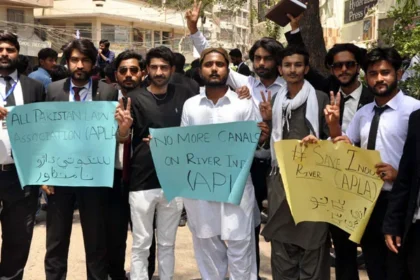General Muhammad Zia-ul-Haq died in a plane crash, but his regime never landed. He has been dead for nearly four decades. His plane fell from the sky in 1988, along with his body, his entourage, and a crate of mangoes. But in Pakistan today — in courtrooms, classrooms, newsrooms, and police stations — Zia is more alive than ever.
The military strongman who seized power in 1977 didn’t just run a dictatorship. He encoded one. Zia’s genius wasn’t only in silencing opposition; it was in programming a national operating system where fear masquerades as piety, and obedience wears the cloak of religion.
The terrifying truth of 2025 is this: the dictatorship never ended. It simply put on a suit, grew a beard, and called itself democracy.
The State as Sermon
Step into any Pakistani courtroom. The wigs may be British, but the judgements increasingly sound like Friday sermons. Judges lace legal opinions with Quranic references — not to interpret faith, but to enforce conformity. Blasphemy laws, introduced under Zia, remain sacrosanct — untouchable by even the boldest legislators.
In Zia’s Pakistan, state power was God’s will. In 2025, that idea has metastasised. Dissent isn’t just unpatriotic — it’s sacrilegious.
The Youth He Never Met, But Still Commands
Zia died before today’s undergraduates were born. But go to a university campus in Lahore or Islamabad, and you’ll find his fingerprints. Student unions were banned under his rule — a ban that lingered for decades. In the void, Islamist student groups rose, often encouraged by the state, trained to police “morality” instead of demanding reform.
Their language is pure Zia: anti-liberal, anti-woman, pro-army, and pro-veil. It’s not rebellion — it’s inherited orthodoxy.
The Feminist Enemy
Zia’s war on women was clinical. His Hudood Ordinances didn’t just criminalise female autonomy — they redefined it as sin. A rape victim needed four male witnesses to prove her assault. Failing that, she could be jailed for adultery.
Fast forward to 2025: survivors are still silenced, judges still doubt them, and every time a woman speaks too loudly in public, someone quotes “Eastern values” — a term Zia weaponised to strangle feminism in its crib.
Criminalise
Bureaucracy, too, remains a boy’s club where policies are vetted not just by law but by invisible religious litmus tests. The state may change governments, but its gender paranoia remains untouched.
TV Anchors as Moral Police
Zia once banned dancing on television. He would’ve loved modern talk shows. Each night, men in suits scream about “Western agendas”, “foreign-funded NGOs”, and “immoral women” corrupting the youth.
The media doesn’t challenge the system — it reenacts it. Women are interrupted, human rights lawyers are framed as traitors, and activists are doxxed live on air. Zia’s censors no longer need red ink. They’ve evolved into microphones.
A Nation Held Hostage by Ghosts
Zia’s real victory wasn’t martial law. It was psychic colonisation. He made it impossible to imagine a Pakistan not ruled by religion — or fear.
Even today, Pakistanis can protest inflation, corruption, and even generals, but not the structure Zia built. Not the blasphemy laws. The Constitution does not contain any Islamic clauses. Not the militarised religiosity that infests public life like a parasite.
His dictatorship wasn’t a decade. It was a permanent update to the national software.
The Rebranding of Tyranny
In 2025, democracy has returned — technically. Elections are held, parliament convenes, and prime ministers come and go. But the system Zia engineered still decides who rises, who vanishes, and who is branded a traitor or saint.
convenes, and
The story isn’t just about Zia. It’s about how a nation makes peace with its abuser by forgetting the abuse. The story is about how authoritarianism, once veiled in khaki, now conceals itself behind black robes, Urdu columns, and televised debates.
Pakistan did not bury Zia-ul-Haq. It built its institutions in his image.
The Question That Still Haunts Us
So here we are, in a digital future ruled by analogue ghosts. What would it take to exorcise Zia? A new constitution? A cultural reckoning? A truth commission?
Analogue
Or is the horror simpler — that we no longer want to let him go?
Because if Zia’s legacy teaches us anything, it is occasionally this:
Occasionally, the dead don’t haunt us.
We haunt ourselves.














